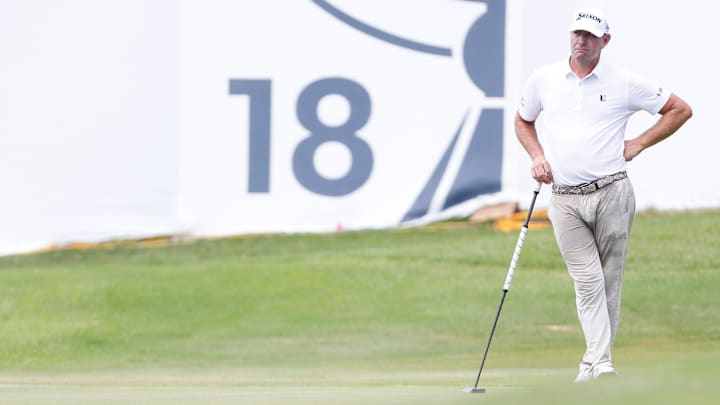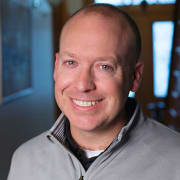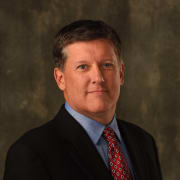Fact or Fiction: Shot Clocks Are the Only Way to Fix the PGA Tour’s Slow Play Plague

Welcome back to SI Golf’s Fact or Fiction, where we are so ready for a banger of a weekend at Pebble Beach.
Once again, we’re here to debate a series of statements for writers and editors to declare as “Fact” or “Fiction” along with a brief explanation. Responses may also (occasionally) be “Neutral” since there's a lot of gray area in golf.
Do you agree or disagree? Let us know on the SI Golf X account.
CBS’s Dottie Pepper called out slow play during the final round of the Farmers, calling it a matter of “respect” for all involved including fans, though she suggested to Sports Illustrated that a shot clock isn’t the full-time answer on Tour. Justin Thomas also said a clock would be hard to implement. But that’s the only solution that would satisfy fans, especially with many now watching the shot clock on TGL—where Tiger Woods got no favoritism while being penalized for a violation.
Bob Harig: FICTION. As great as it is in TGL, that is a controlled environment with one clock. How many would you need to pull it off at a PGA Tour event? Who would man them? Do you have one on the tee, one in the fairway, one on the green? The idea is not practical. Having one or two events where that is the focus would be fine. But that won’t work on a week-to-week basis.
Jeff Ritter: FACT. Shot clocks are used in many other sports (even tennis!) to force competitors to pick up the pace. Just put a timer on each group—there would be some logistical issues to sort but it feels manageable. Championship golf, and its TV audience in particular, would benefit from measuring not only who plays the best, but who plays the best within an allotted time.
John Schwarb: FICTION. I agree with Bob, the logistics over an entire course would be daunting. Fans want a solution but also honesty from the Tour—don’t play 5.5-hour rounds and pretend that’s O.K. Issue real penalties (shots, not dollars) and share with the world. Players will adjust when there are real consequences.
TGL finally had a competitive match in its fourth week, with Woods’s Jupiter Links beating Rory McIlroy’s Boston Common via an overtime closest-to-the-pin format. The PGA Tour should use a similar format in playoffs after a fixed number of sudden-death holes.
Bob Harig: FICTION. That becomes goofy golf. Long ago, golf at least recognized that the idea of a full playoff was unwieldy. But to do anything less than full playoff holes to decide a winner would not be satisfying in regular, official tournament golf.
Jeff Ritter: FICTION. I like a high-stakes sudden-death format, but no, closest-to-the-pin isn’t suitable for a Tour event. It works for TGL, though, and you could also do it at the Tahoe celeb event in July.
John Schwarb: FACT. We’re not talking about something that would happen very often, but if this prevents the every-couple-years Monday morning playoff finish, I’m all for it. Winners should always be decided on Sundays, barring weather or other unusual circumstances.
This is the second year of the new-format AT&T Pebble Beach Pro-Am, featuring an elite field with no cut and just 36 holes of amateur play, meaning no more “Saturday at Pebble” with celebrities. This was the best move for the historic tournament.
Bob Harig: FACT. The Saturday celebrity-fest had run its course. Not sure a smaller field is a good idea for this tournament but it’s early and should be evaluated.
Jeff Ritter: FACT. Once Pebble became a signature event, it made sense to clear out the celebs early so the top players can compete for the big prize money. I liked the old format, but elevating the event’s status was the best way to preserve it.
John Schwarb: FACT. There weren’t enough popular celebs to make up for the dearth of top players in recent years at Pebble. While the Tour took kind of an extreme route, it was unquestionably the right one when you see this week’s field.
The LPGA canceled a tournament scheduled for two months from now, as problems with underwriters left the tour unpaid for the Fir Hills Seri Pak Championship. This is a black eye for the LPGA on the eve of its season opener.
Bob Harig: FICTION. This is not the LPGA’s fault. A partner did not fulfill its obligations and the tour decided to cut its losses rather than bear a financial hit. It’s unfortunate but a rare reality that obligations are not met among those wanting to get involved in professional golf.
Jeff Ritter: FACT. Though “black eye” may be a little strong. How about a mild knee-bruise? It’s not a great look, but hey, there’s so much money on the line these days, things happen, sponsors come and go and schedules change.
John Schwarb: NEUTRAL. There’s likely more to this story than we’ve heard and the LPGA may be blameless, but the timing is very poor and doesn’t help a league trying to build momentum.


